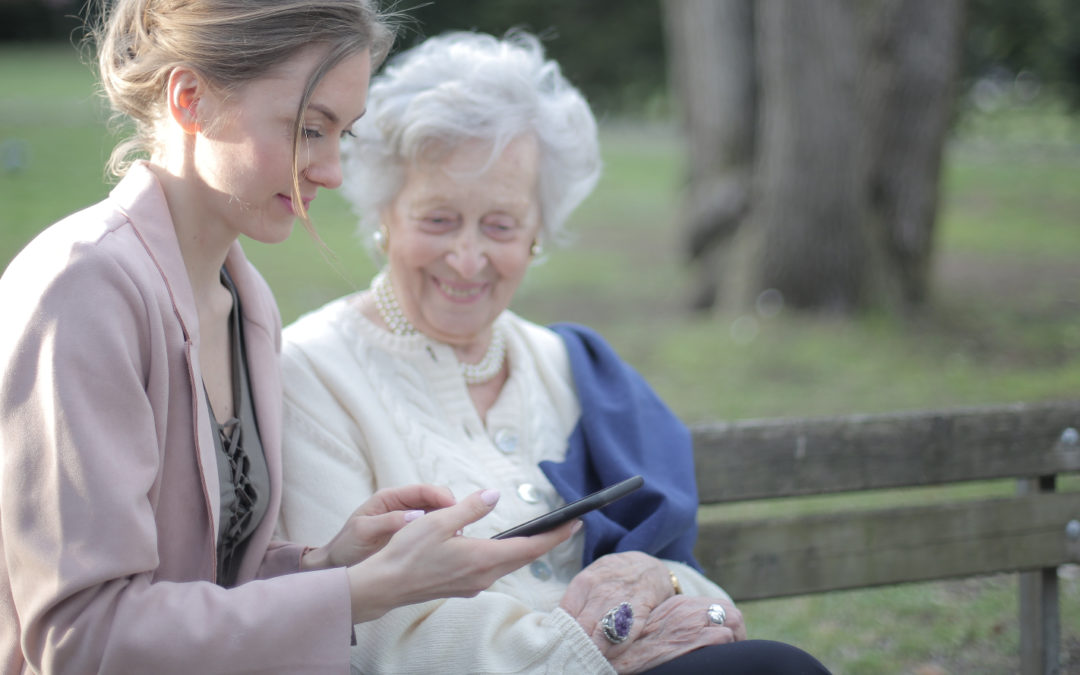Photo by Andrea Piacquadio
Alzheimer’s is a complex disease, not only for the individual who’s experiencing it but also for their family members and loved ones. When communicating with a person who has Alzheimer’s, you’ll need to have the elements of patience, compassion, and understanding. It’s difficult for Alzheimer’s sufferers to communicate, mostly due to their memory decline. Sometimes they’ll have trouble remembering what they intended to say or face difficulties with producing the right words. Here are 10 tips that can help make communicating with someone with Alzheimer’s manageable and more effective.Table of Contents
What is Alzheimer’s?
Alzheimer’s affects up to 80% of dementia patients and is the most prevalent form of dementia – substantially impacting memory, behavior, and thinking. As the disease progresses, the symptoms become even more intense, making completing basic daily tasks complicated. In the beginning stages, an individual typically experiences mild memory loss, but in the later stages, the individual is no longer able to adapt to their environment or even participate in a conversation.
What’s the Difference Between Alzheimer’s and Dementia?
While Alzheimer’s and dementia are often used interchangeably, there are actually differences. Dementia is when the mental ability has deteriorated to the point that it impacts daily living. It’s a group of symptoms accompanied by memory loss and other cognitive disabilities. On the other hand, Alzheimer’s is a regressive brain disease that happens as a result of extreme changes in the brain.
An individual who suffers from Alzheimer’s will find it difficult to remember any new information since it impacts the area of the brain that has to do with learning. As the disease progresses, the symptoms will continue to get even worse and include confusion, changes in behavior, and disorientation. In the later stages, it will be challenging or even impossible for an individual to walk, speak, or even swallow.
Tips for Effective Communication with Someone with Alzheimer’s
Communicating effectively with a loved one who has Alzheimer’s is a challenging venture. As the disease advances into the later stages, the usual methods of communication become less and less effective. Below are techniques to improve your communication with someone with Alzheimer’s.
1. Avoid complex sentences: Keeping it short is the best way to go. If you have a request, break it down into easy-to-understand steps. Also, consider asking questions to which your loved one must respond with a “yes” or a “no.”
2. You’ll have to decode: Learn how to decipher what your loved one is trying to say based on the conditions at that time.
3. Patience is key: Listen attentively and give your loved one as much time as needed to talk without interruption.
4. Be respectful: Never talk about your loved one as if they’re not present and avoid demeaning language.
5. Eye contact: Make sure you have eye contact with your loved one.
6. Be mindful of body language and tone: Non-verbal communication is just as important as verbal communication. Be mindful when it comes to your body language, the volume of your voice, and your tone.
7. Two-way conversation: Make the conversation engaging and promote a two-way conversation for as long as you can.
8. Use distractions: Attempt to distract your loved one if problems arise while communicating.
9. Hand-holding: Sometimes holding your loved one’s hand while speaking can make a positive difference.
10. Repeat: If you have to, repeat instructions so that your loved one can have more time to respond.
What Should You Not Say to Someone with Alzheimer’s?
Having more of an understanding of the disease and the role it plays in interaction can help enhance communication with someone with Alzheimer’s. Here are a few things to avoid.
Avoid bringing up topics that might upset them: If you know what topics are upsetting to your loved one, try to avoid them altogether.
Avoid arguing: Engaging in an argument with your loved one is not going to go over very well. In fact, their confusion will only escalate the situation. If a disagreement does happen, try to change the subject as quickly as possible.
Avoid using figures of speech when talking: Since Alzheimer’s gets worse over time, you’ll have to modify your communication. Your loved one will find it difficult to understand what you’re trying to say, and when you use figures of speech, they’ll become even more confused.
Do not use more than one command at once: A loved one with Alzheimer’s is unable to grasp multiple commands in one sentence. You’ll need to break it apart and use one command at a time.
What Are the Four R’s of Communication When Dealing with Alzheimer’s?

Photo by Andrea Piacquadio
With Alzheimer’s, there comes changes in behavior. From agitation to confusion and disorientation, these behaviors can happen at a moment’s notice. It’s important to understand the R’s of communication when dealing with someone with Alzheimer’s so you can diffuse the situation and improve interactions.
Reassure: You can reassure your loved one with calming words.
Reconsider: Try to reconsider your stance from their perspective.
Redirect: If your loved one is confused about why they have to do a certain activity, redirect them to a more enjoyable activity by playing some of their favorite music or getting some fresh air.
Relax: It’s beneficial for you and your loved one to breathe and relax.
Need Extra Support?
Effective communication with someone with Alzheimer’s can pose a challenge, but it’s important for maintaining and nurturing relationships. By understanding Alzheimer’s and incorporating the mentioned techniques, you can enhance your interactions by leaps and bounds. When communicating with a loved one with Alzheimer’s, a few of the most fundamental aspects include patience, compassion, and respect. If you need extra support from a premier assisted living facility, you can rest assured that your loved one will be in the right hands at Sandyside Senior Living.
Sandyside Senior Living
This information was provided by Sandyside Senior Living in White Lake, Michigan. Sandyside specializes in advanced care for seniors with dementia, Parkinson’s, and all age-related illness.
Interested in learning more about Sandyside Senior Living? Contact Sandyside online, or call at (248) 698-3700.
To get in touch with Sandyside Senior Living please complete the form below:
VISIT SANDYSIDE SENIOR LIVING TODAY
PHONE: (248) 698-3700


